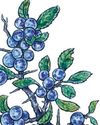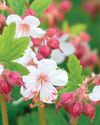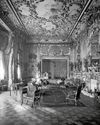The townscape of Royston in Hertfordshire preserves the vestiges of one of Britain’s most surprising royal palaces. Simon Thurley describes the form and history of this remarkable building

In the autumn of 1604, only just over a year into his reign, James I decided to found one of the most unlikely and unusual royal residences in the long history of the monarchy. This was a building that posterity has sometimes called Royston Palace, but it looked nothing like a palace of popular imagination; indeed, it was little more than a cluster of houses in the middle of a Hertfordshire market town. This unpalatial palace became one of the King’s most favoured residences, the scene of many important events in his reign.
Although, during the Commonwealth, the royal residence was abolished and sold, the streets of Royston still contain many of the former royal buildings, enough, in fact, to reconstruct this most unusual creation.
As James I travelled south from Scotland after his accession, he eventually arrived at Royston, set on the Great North Road some 60 miles from his new capital. In the Middle Ages, the town was half in Cambridgeshire and half in Hertfordshire, clustered round a marketplace and a modest, but rich, priory.
The priory had been dissolved in 1536, the priory church transformed into the parish church and its residential buildings converted into a house by Robert Chester, one of Henry VIII’s Gentlemen Ushers. It was in this large courtyard house that the new King stayed in April 1604 with his boisterous retinue.
The King’s progress from Edinburgh had started briskly, but had become bogged down as James began to revel in the enthusiasm and excess of his welcome. Before he had even reached Newcastle, people realised his passion was hunting and his journey south became an orgy of riding and shooting.
この記事は Country Life UK の August 14, 2019 版に掲載されています。
7 日間の Magzter GOLD 無料トライアルを開始して、何千もの厳選されたプレミアム ストーリー、9,000 以上の雑誌や新聞にアクセスしてください。
すでに購読者です ? サインイン
この記事は Country Life UK の August 14, 2019 版に掲載されています。
7 日間の Magzter GOLD 無料トライアルを開始して、何千もの厳選されたプレミアム ストーリー、9,000 以上の雑誌や新聞にアクセスしてください。
すでに購読者です? サインイン

Kitchen garden cook - Apples
'Sweet and crisp, apples are the epitome of autumn flavour'

The original Mr Rochester
Three classic houses in North Yorkshire have come to the market; the owner of one inspired Charlotte Brontë to write Jane Eyre

Get it write
Desks, once akin to instruments of torture for scribes, have become cherished repositories of memories and secrets. Matthew Dennison charts their evolution

'Sloes hath ben my food'
A possible paint for the Picts and a definite culprit in tea fraud, the cheek-suckingly sour sloe's spiritual home is indisputably in gin, says John Wright

Souvenirs of greatness
FOR many years, some large boxes have been stored and forgotten in the dark recesses of the garage. Unpacked last week, the contents turned out to be pots: some, perhaps, nearing a century old—dense terracotta, of interesting provenance.

Plants for plants' sake
The garden at Hergest Croft, Herefordshire The home of Edward Banks The Banks family is synonymous with an extraordinary collection of trees and shrubs, many of which are presents from distinguished friends, garnered over two centuries. Be prepared to be amazed, says Charles Quest-Ritson

Capturing the castle
Seventy years after Christian Dior’s last fashion show in Scotland, the brand returned under creative director Maria Grazia Chiuri for a celebratory event honouring local craftsmanship, the beauty of the land and the Auld Alliance, explains Kim Parker

Nature's own cathedral
Our tallest native tree 'most lovely of all', the stately beech creates a shaded environment that few plants can survive. John Lewis-Stempel ventures into the enchanted woods

All that money could buy
A new book explores the lost riches of London's grand houses. Its author, Steven Brindle, looks at the residences of plutocrats built by the nouveaux riches of the late-Victorian and Edwardian ages

In with the old
Diamonds are meant to sparkle in candlelight, but many now gather dust in jewellery boxes. To wear them today, we may need to reimagine them, as Hetty Lintell discovers with her grandmother's jewellery